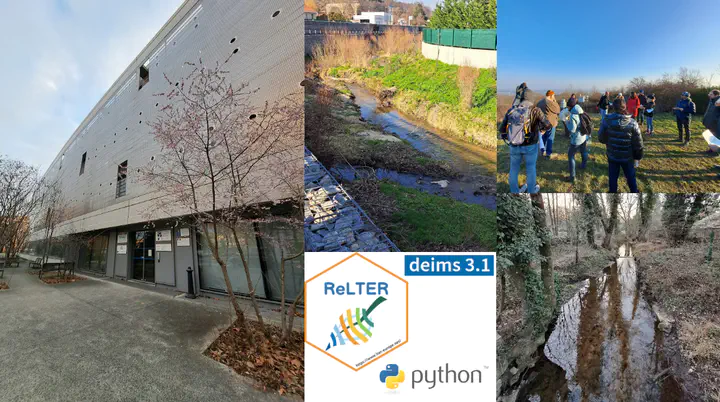Exploring Environmental Data at the eLTER Tools Workshop in Lyon, France 🌍🔬

Last week, I had the privilege of attending the eLTER tools workshop in Lyon, France 🇫🇷. The workshop was an excellent opportunity to learn about the latest tools and techniques for working with environmental data in eLTER stations 📊🌱.
One of the most valuable aspects of the workshop was the introduction of DataLabs, a collaborative data management platform 💻. The platform provides a secure area for researchers to collaborate with colleagues from around the world, create shared drives, and store experimental data 🤝.
In addition to DataLabs, the workshop introduced participants to python tools to extract information from DEIMS 🐍📈. This is important because DEIMS is a database that stores information on ecosystem research sites, including information on the physical and biological parameters of the sites, as well as the research activities that take place there 🌿🔍. Python tools enable the access to extract information from DEIMS through API.
The workshop also featured the ReLTER R package, which provides a streamlined way to access data from eLTER stations 🚀. ReLTER is designed to simplify the process of accessing data, and it enables researchers to easily combine and analyze data from multiple sources 🤖💻.
One of the most exciting aspects of the workshop was the visits to restoration sites in Lyon and monitoring stations in the region 🚶♂️🏞️. The restoration sites and monitoring stations provided valuable insight into the real-world challenges of working with environmental data, and helped us to understand the importance of collaboration and data sharing in achieving successful outcomes 🤝🌟.
Overall, the eLTER tools workshop in Lyon was an excellent opportunity to learn about the latest tools and techniques for working with environmental data in eLTER stations 🌍🔬. The workshop highlighted the importance of collaboration, data sharing, and practical applications in achieving meaningful outcomes in the field of ecosystem research 🌱🔍. I highly recommend attending the eLTER tools workshop for anyone interested in working with environmental data in the future 🌟.